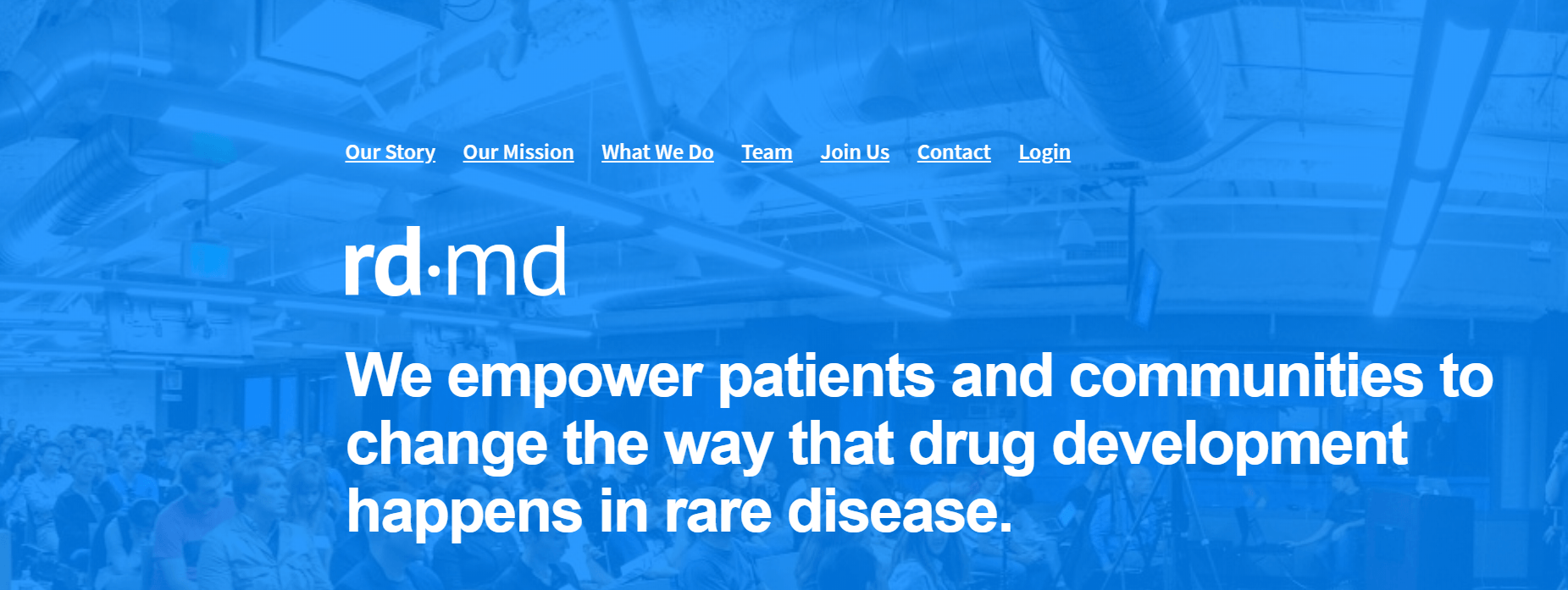
San Francisco-based RDMD, a biopharma startup dedicated to accelerating research for patients with rare diseases, announced its $3 million seed financing backed by Lux Capital and Village Global, whose network of backers include Bill Gates, Mark Zuckerberg, Jeff Bezos, and Reid Hoffman. RDMD has developed a technology platform that generates deep data insights to accelerate rare disease research and drug development, as well as a patient application that empowers patients and families to get access to and benefit from their own medical data.
The company plans to use the funding to further develop the company’s platform, expand the leadership team to support demand and growth, generate high-quality data, expand into new rare conditions, and work with partners to advance their research and development programs.
Onno Faber, 36, has a tech background but started RDMD when he was diagnosed with neurofibromatosis (really interesting story behind the company’s mission). The other founder is Nancy Yu, 29, who headed corporate development at 23andMe.
“RDMD was born out of my own personal journey with a rare disease called neurofibromatosis type 2, a disease that affects only 1 in 30,000 people. I’ve been developing technology products my entire life, and I wondered if we could marry a powerful data and analytics platform with patient data to gain insights into rare diseases,” said Onno Faber, RDMD founder, chairman, and head of product. “That idea turned into reality with the founding of RDMD. We have since pioneered the development of a powerful platform that leverages deep data insights to empower rare disease research and drug development, as well as an application that allows patients to take the management of their disease into their own hands. This financing enables us to expand our efforts and tailor our approach for the needs of any rare condition, providing real value for both patients and drug developers.”
Curation of Real World Data for Rare Disease Research
RDMD aims to partner with rare disease biopharmaceutical companies to provide deep clinical electronic health record (EHR) data from patients, rare disease doctors, and foundations. The company has two major initiatives:
– Patient app: RDMD has allowed patients to share their private records with new facilities they visit and seek remote consults from experts in their condition. Patients have also provided informed consent to RDMD to share relevant biomarkers, endpoints and measures with researchers such as biopharmaceutical partners, academic researchers and nonprofits working in the condition.
150 patients already using the app in neurofibromatosis. Records help patients share their data with doctors, get second opinions, coordinate ongoing care, and they can also give consent to share biomarkers, endpoints, etc. for drug development.
– Partnering with rare disease companies: Leverage aggregated research-grade, regulatory-grade data to partner with rare disease companies to drive rare disease R&D. Data will provide insights on natural history, endpoint selection, and evidence generation for regulatory submissions.
RDMD’s technology platform transforms unstructured data from medical records into disease-specific data models that can be readily analyzed. Most data from medical records are currently unusable for research because they are trapped in physician notes and progress reports that cannot be easily mined. RDMD works with top research doctors in each condition to define the relevant data measures and biomarkers to collect in order to generate the most relevant insights for clinical development. RDMD’s technology enables audit-trails and links to original source documents to ensure compliance and quality control.
RDMD is currently collaborating with researchers at the National Cancer Institute to track pain symptoms in people with a type of neurofibromatosis called NF1. The company has also partnered with the Children’s Tumor Foundation to generate real-world evidence from NF patient medical records across all forms of neurofibromatosis, including NF1, NF2, and schwannomatosis. RDMD plans to expand into rare neurological and inherited metabolic diseases.
“As our programs advance into the clinical stage, we have a greater need for robust evidence that can be used to inform and support these programs,” said Annette Bakker, Ph.D., president of the Children’s Tumor Foundation. “We’re excited to partner with Onno and RDMD to move to a truly patient-centric approach to drug research and development.”
